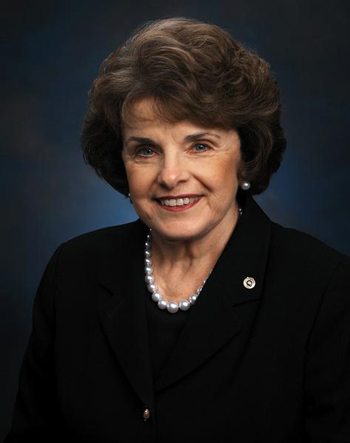July 10, 2021 - Washington - Senator Dianne Feinstein (D-Calif.) on Friday applauded language in the draft infrastructure funding bill released by the Senate Energy  and Natural Resources Committee that would help address the pay gap between federal and state wildland firefighters.
and Natural Resources Committee that would help address the pay gap between federal and state wildland firefighters.
Senator Feinstein also announced her support for funding authorization levels in the draft bill to help address the risk of catastrophic wildfires and fund wildfire mitigation programs. These funds would be wrapped into the larger $1.2 trillion infrastructure bill whose framework was agreed upon by President Biden and a bipartisan group of senators last month.
“In 2020, wildfire in California consumed 4.4 million acres, claimed 33 lives and destroyed 5,500 homes. And record-dry conditions mean this year could be even worse, with nearly 4,000 fires already having burned 18,500 acres,” Feinstein said.
“Today’s draft funding bill first and foremost would help address the pay gap between federal and state wildland firefighters. The base salary for an entry-level federal firefighter is just more than half that of their state counterparts, making if difficult to hire and retain firefighters. By raising federal firefighter salaries by $20,000 a year and transitioning at least 1,000 positions from seasonal to permanent, this bill would go a long way toward solving this pay gap problem.”
Federal wildland firefighter salary fix in the bill:
- Authorizes $600 million to increase salaries for firefighters within the Interior Department and Agriculture Department by $20,000 per year.
- Converts at least 1,000 seasonal firefighters to permanent, year-round positions.
“I strongly support the overall funding levels in this bill for hazardous fuel reduction and forest management programs to help reduce wildfire risk. The bill would also help modernize our electricity system to help prevent fires by burying wires and allowing targeted power shutoffs and funds programs to make homes and businesses more fire resistant,” Feinstein said.
“Lowering the risk of wildfires is a critical infrastructure investment, and I’m grateful this plan recognizes that need. I hope to build on this effort through several other bills I have drafted or am supporting in order to implement additional reforms.”
Funding authorization levels for key wildfire mitigation and control programs:
- $3.3 billion for wildfire risk reduction efforts including hazardous fuels reduction, controlled burns, community wildfire defense grants, collaborative landscape forest restoration projects and funding for firefighting resources. ($600 million of these funds go toward increasing federal firefighter salaries, as detailed above.)
- $2 billion for the Interior Department and U.S. Forest Service to carry out and fund ecological restoration projects on public and private lands.
- $5 billion for utilities and grid operators to bury power lines and install fire-resistant technologies to reduce wildfires and expand the use of electricity micro grids to reduce disturbances caused by voluntary power shutoffs.
- Directs public utilities commissions to create “demand response” programs to reduce electricity consumption during periods of high demand such as heat waves.
- $3.5 billion for the weatherization assistance program to help homeowners make energy efficient improvements to their homes.
Source: Senator Dianne Feinstein








